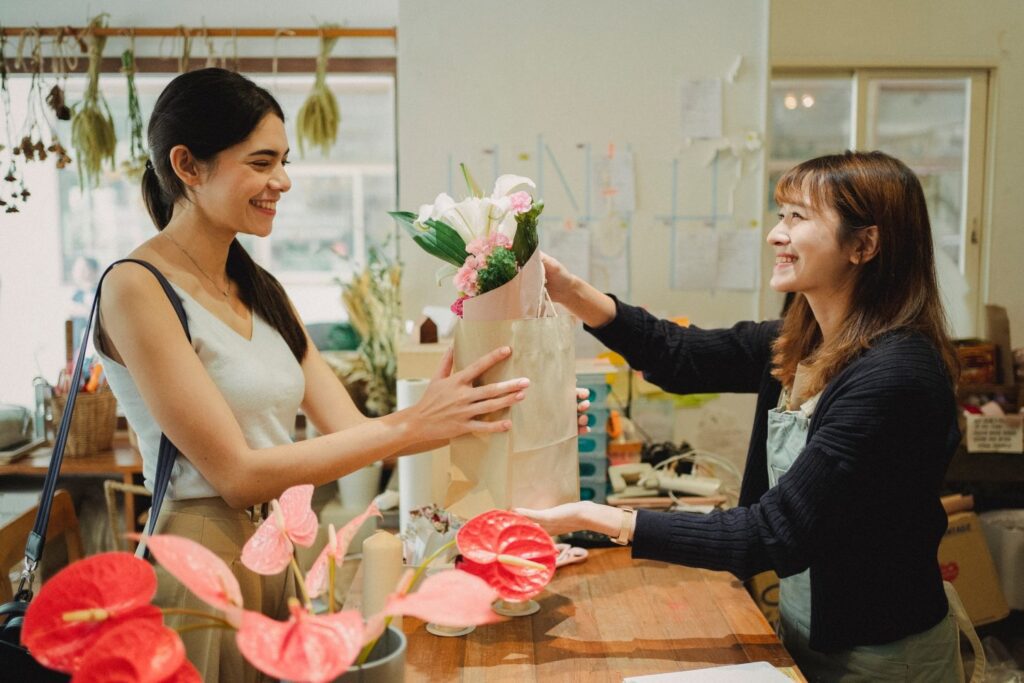When we’re feeling down, society tells us to indulge in ‘retail therapy’, but research shows that the key to happiness is actually in treating others, rather than ourselves. In other words, giving can increase your wellbeing. It’s associated with feel-good hormones, a feeling of connectedness with other people, and greater overall life satisfaction. As Winston Churchill once said: “We make a living by what we get. We make a life by what we give.”
Increasing Wellbeing
Research has shown that giving makes us feel good. According to one UnitedHealth Group survey, 25% of Americans volunteered in some way last year, and of those who did, 94% said it improved their mood. This is because humans, at their core, are altruistic people. Seeing others suffer triggers a powerful feeling of compassion. It activates the vagus nerve, which is seen in mammals when they take care of young. However, researchers found that this feeling of compassion can be blocked by other factors like money. It is believed the less economically fortunate have stronger feelings of compassion than the rich. If we could overcome this desire to keep fortune for ourselves, how much happier we could be!
In one study, researchers gave university students some money that they could either give away or keep for themselves. Those who gave the money away reported feeling happier later. But you don’t have to spend money either! Performing random acts of kindness also benefits you. In another study, researchers asked some participants to treat themselves, but asked others to perform a random act of kindness for the community (like picking up litter) or for a friend (like buying them a coffee). Self-reports 6 weeks later showed that participants who gave to others felt happier compared to those who were kind to themselves or those in the control condition (who weren’t asked to do anything). Giving can even benefit your relationships too – men in long term relationships were more likely to say a relationship will continue after receiving a thoughtful gift from their partner.
So Why Does Giving Have Such Beneficial Effects?
It’s possible it provides a sense of agency – a feeling that you as an individual can change the world. It increases trust and cooperation between people, and this strengthens social ties. Spending time on others can shift the focus away from yourself, which in turn distracts and gives perspective on your own problems whilst interrupting any rumination.
Biologically, giving creates a potent cocktail of feel-good chemicals: The Happiness Trifecta of oxytocin, dopamine, and serotonin. It has a plethora of benefits: better sleep, more motivation, stronger memory, and increased learning. Oxytocin is known as the ‘cuddle hormone’ and is also released during sex and breast-feeding. It allows us to bond with others and is released when we’re generous. Its ‘symptoms’ can last for up to two hours! It can instill a desire for generosity in the recipient too, so your one act of kindness could create a domino effect.
Do you fancy a dopamine boost?
Here are some random acts of kindness you could try:
1 Pick up 5 pieces of rubbish the next time you’re on a walk
2 If you have elderly neighbours during COVID, offer to do their shopping
3 Run your spouse a secret bubble bath if they’ve had a stressful day at work
4 Write a thank-you note to your child’s teacher
5 Comment something supportive on someone’s social media post
However, there are some forms of giving that are more beneficial than others. Research shows we benefit more from giving a gift to someone close to us (a friend or family member) rather than someone more distant (like a boss). And gifts that provide experience will lead to more happiness for the recipient (think: concert tickets, spa day, cooking lessons). But remember, gifts don’t have to be expensive, it’s the thought that counts.
There are chances for random acts of kindness everywhere! You will feel better, more confident, and more compassionate if you treat others.
All clinicians at Oxford CBT practice Cognitive Behavioural Therapy, or are Psychologists, providing evidence-based interventions and support for a range of issues for both young people and adults. If you would like to book an appointment you can do so on our online booking portal. If you have a question please get in touch via our online contact form or call us on 01865 920077.



